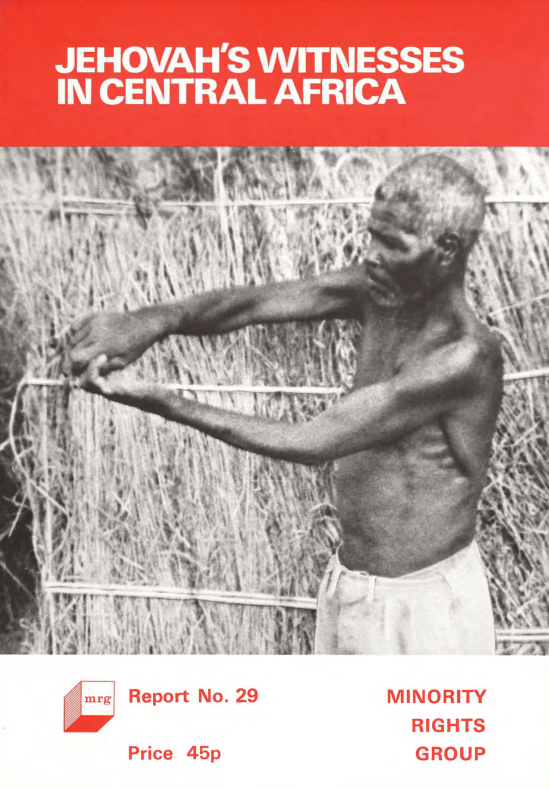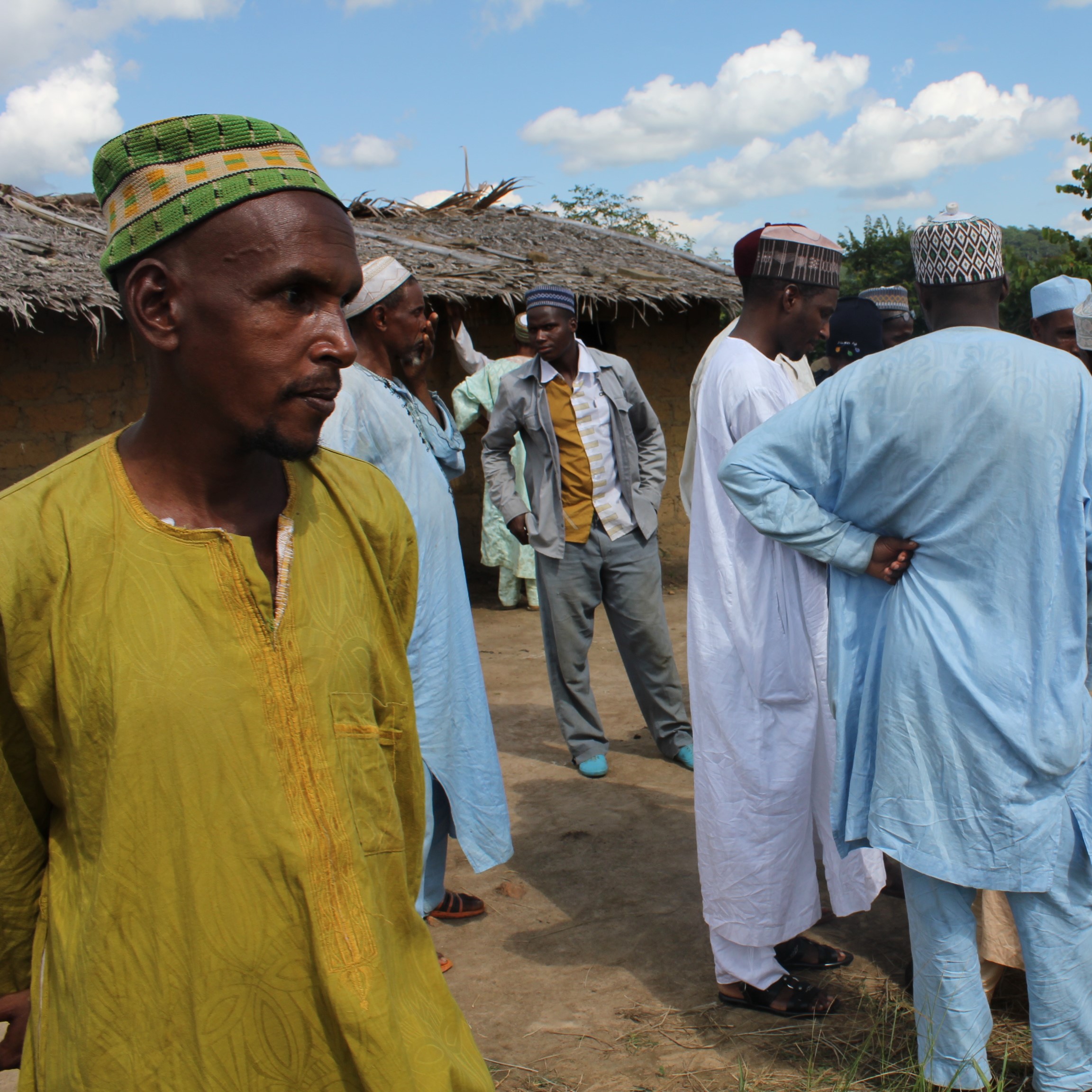
Jehovah’s Witnesses in Central Africa
Jehovah’s Witnesses – the members of an American-based millenarian religious sect known as the Watch Tower Bible and Tract Society (WTBTS) – have been harassed and persecuted by governments the world over. In Nazi Germany, they were rounded up and sent to concentration camps. The Society was banned in Australia and Canada during the Second World War because of its pacifist teachings. Now, the Jehovah’s Witnesses are being hounded in Africa, where some 250,000 of the world’s two million Witnesses live.
In white-ruled South Africa, the WTBTS has frequently incurred the displeasure of government authorities. Jehovah’s Witnesses refuse to join the South African armed forces, even in non-combatant service, and face terms in prison for disobeying the draft. African Watch Tower children have been expelled from school for their refusal to sing the South African national anthem, and in white schools, students face expulsion for refusing to join the compulsory Youth Preparedness Programme, salute the South African flag and sing the national anthem.
The Witnesses’ refusal on religious grounds to participate in politics or to honour national symbols like flags and anthems has also prompted numerous black-run governments to clamp down on the sect. The movement is banned in Ethiopia and Tanzania. In Zaire, where the sect was illegal under Belgian rule, it was held responsible by Moise Tshombe for the 1961 Luba rebellion and was proscribed in 1966.
Please note that the terminology in the fields of minority rights and indigenous peoples’ rights has changed over time. MRG strives to reflect these changes as well as respect the right to self-identification on the part of minorities and indigenous peoples. At the same time, after over 50 years’ work, we know that our archive is of considerable interest to activists and researchers. Therefore, we make available as much of our back catalogue as possible, while being aware that the language used may not reflect current thinking on these issues.
